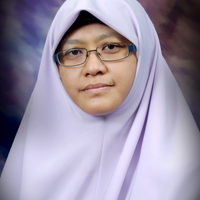
Cooperative Problem-Based Learning (CPBL) enhances student engagement, problem-solving, and teamwork in engineering education. Dr. Khairiyah Mohd-Yusof (Purdue University) shares insights on how CPBL scaffolds learning for better outcomes.
April 10, 2PM
Kiewit Hall A253 or via zoom
Presenter:Khairiyah Mohd-Yusof, Professor of Engineering Education, Purdue University
Title: Enhancing Learning in Typical Engineering Courses: The Multi-faceted Impact of Cooperative Problem-based Learning
Abstract:
Problem-based Learning has been shown to be a powerful pedagogical approach to engage students in learning within professional contexts, promoting deep learning and enhancing a myriad of professional skills, behaviors, and attitudes. The strength of effective PBL is through providing students with authentic, contextualized learning experiences in the form of complex real-world problems within a constructivist learning environment. However, being highly student-centered, disparities in implementation occur in the ways students are supported while undergoing PBL resulting in varying impact on students learning. Cooperative Problem-based Learning (CPBL) framework addresses these disparities through scaffolding students learning step by step as they tackle complex problems in a collaborative learning environment. CPBL is the infusion of cooperative learning principles into the inductive medical school PBL process to support students learning in small groups in a typical classroom. From its initial design and implementation twenty years ago, various research had been conducted to investigate and improve CPBL. This presentation highlights the implementation and research on CPBL in typical classrooms, demonstrating its effectiveness in enhancing student motivation, learning, team-working, problem-solving and meta-cognitive skills.
Bio:
Dr. Khairiyah Mohd Yusof is a Professor of Engineering Education. Prior to joining Purdue, she served as a Professor in the School of Chemical Engineering and was the founding Director of Universiti Teknologi Malaysia Centre for Engineering Education. A practitioner, trainer, mentor and researcher in engineering education, she deeply committed to guiding engineering academics in adopting a scholarly approach to their practices. Khairiyah had led numerous impactful engineering education projects, including the Malaysian Ministry of Higher Education Consortium Grant on Teaching and Learning for 4IR, Malaysian Council of Engineering Deans project on Future Directions of Engineering Education for Public Universities, the World Bank-funded OBE-SCL for Higher Education in Afghanistan, and the UK RAE Engineering X project on Enhancing the Quality of Engineering Education in Indonesia. As a recognition for contribution, she received several notable awards including the 2023 Nicola Tesla Golden Chain Award from the International Society for Engineering Pedagogy, 2022 Top Research Scientist from the Academy of Science Malaysia, 2018 IFEES Duncan Fraser Global Award for Excellence in Engineering Education, 2017 Student Platform on Engineering Education Mentoring Award and 2015 Frank Morton IChemE Global Medal for Chemical Engineering Education Excellence.